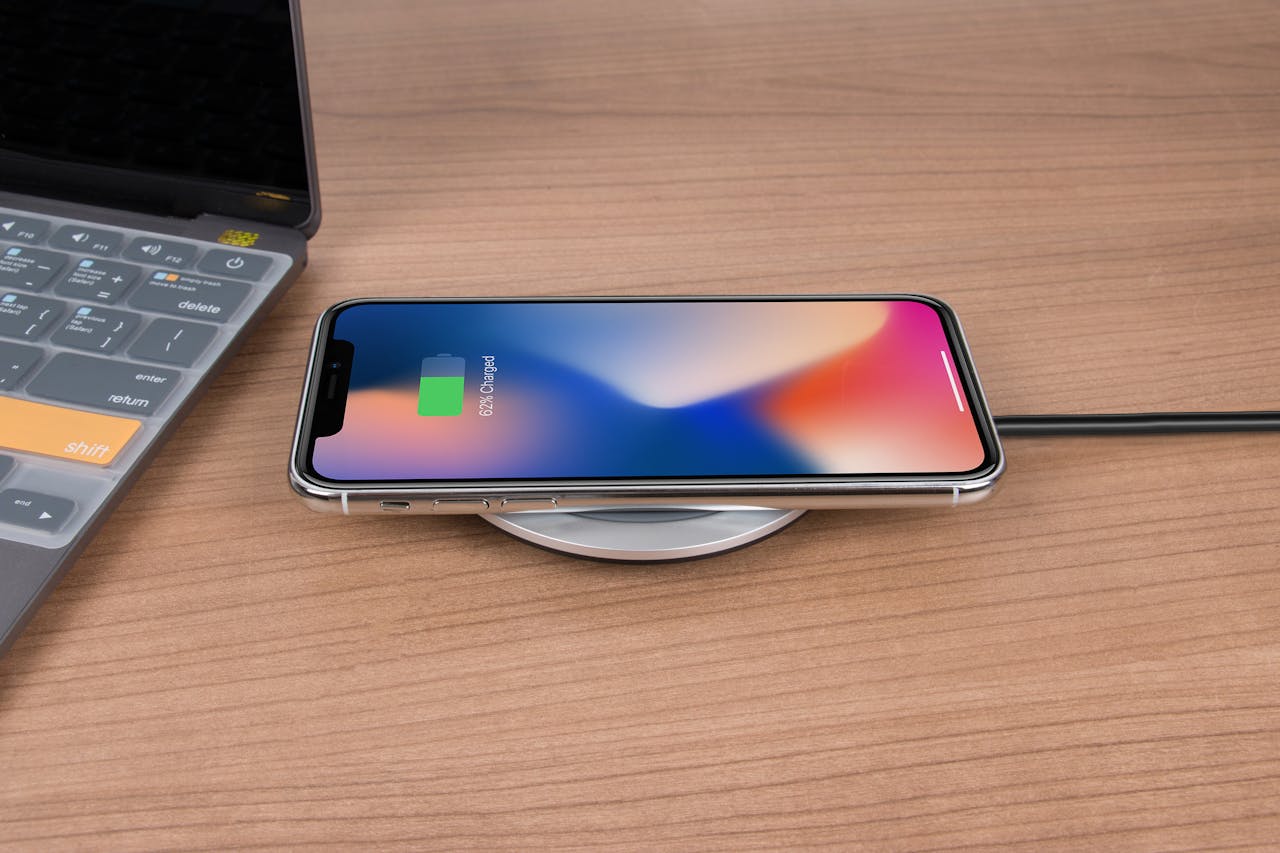Wireless charging has evolved from a novelty to a practical and efficient solution for powering modern devices. By supporting fast-charge technology, it addresses the needs of today’s busy users, combining speed, convenience, and versatility. Continue reading →
In a world dominated by smartphones, tablets, and wearable devices, charging technology has evolved to keep pace with the demands of modern users. Wireless charging has emerged as a convenient and innovative solution, eliminating the need for cables while supporting fast-charge capabilities. This article explores how wireless charging complements fast-charge technology and why it’s becoming a standard for modern devices.


Wireless charging, also known as inductive charging, has grown from a niche feature into a mainstream convenience for tech-savvy users. The technology relies on electromagnetic fields to transfer energy between a charging pad and a device equipped with a compatible receiver. Originally associated with slower charging speeds, wireless charging has advanced significantly, now supporting fast-charge technology that rivals traditional wired methods.
The adoption of wireless charging began with low-power devices like electric toothbrushes and has expanded to include smartphones, laptops, and even electric vehicles. As manufacturers continue to integrate wireless charging capabilities, the technology is becoming a cornerstone of modern device ecosystems.
At its core, wireless charging operates using electromagnetic induction or resonance. When a device is placed on a charging pad, an electromagnetic field is created by the charging coil. This field induces an electric current in the receiving coil within the device, which then powers the battery.
Modern advancements have enabled wireless chargers to support higher power outputs, paving the way for fast wireless charging. Technologies like Qi (pronounced “chee”) have standardized the process, ensuring compatibility across various brands and devices. This interoperability is crucial for the widespread adoption of wireless charging solutions.
Fast-charge technology has revolutionized the way we power our devices, reducing charging times and minimizing interruptions. By increasing the wattage delivered to a device, fast charging allows users to achieve significant battery levels in just a fraction of the usual time.
When combined with wireless charging, fast-charge technology delivers the ultimate convenience. High-powered charging pads, such as those integrated into the SnapWireless power bank, offer quick and efficient energy transfer without the hassle of plugging in cables. This synergy between wireless and fast-charging technologies enhances user experience and promotes seamless device usage.
Wireless fast charging offers numerous benefits, making it a preferred choice for modern consumers. These advantages include:
The absence of cables and connectors eliminates clutter and simplifies the charging process. Users can simply place their devices on a charging pad without worrying about compatibility or port availability.
Frequent plugging and unplugging of cables can wear out charging ports over time. Wireless charging reduces this wear and tear, prolonging the lifespan of devices.
Standardized technologies like Qi ensure that a single wireless charger can power multiple devices, from smartphones to earbuds. This versatility reduces the need for multiple chargers and adapters.
Wireless charging pads can be integrated into furniture, vehicles, and public spaces, offering charging options wherever users go. This accessibility enhances the practicality of wireless fast charging.
Despite its advantages, wireless fast-charging faces some challenges that manufacturers are addressing to improve user experience:
Fast wireless charging generates heat, which can affect battery performance and longevity. Advanced cooling systems and intelligent power management are being developed to mitigate this issue.
For optimal charging efficiency, the device and charging pad must be properly aligned. Innovations in coil design and multi-coil systems are helping to reduce alignment sensitivity and improve ease of use.
Wireless charging can result in energy loss during transmission. Manufacturers are focusing on improving energy transfer efficiency to reduce wastage and promote sustainability.
Wireless fast charging is becoming a ubiquitous feature across various industries and devices. Its applications include:
Most flagship smartphones now support wireless fast charging, allowing users to quickly power up their devices during busy schedules. Tablets equipped with wireless charging enhance portability and convenience for professionals and students.
Smartwatches, fitness trackers, and earbuds benefit from compact wireless charging solutions, eliminating the need for small and often cumbersome connectors.
Wireless charging pads are increasingly integrated into vehicles, enabling drivers to charge their phones and other devices while on the move. This feature is particularly beneficial for long commutes and road trips.
Businesses and public venues are adopting wireless charging stations to offer added convenience for customers and employees. From cafes to airports, these charging solutions cater to the growing demand for on-the-go power.
The evolution of wireless fast charging shows no signs of slowing down. Future developments are likely to focus on:
As these advancements unfold, wireless fast charging will continue to shape the way we interact with our devices, offering unparalleled convenience and functionality.
Wireless charging has evolved from a novelty to a practical and efficient solution for powering modern devices. By supporting fast-charge technology, it addresses the needs of today’s busy users, combining speed, convenience, and versatility. Some innovations exemplify the potential of wireless fast charging, paving the way for a future where cables become a thing of the past. As technology advances, wireless fast charging will remain at the forefront of powering our connected lives.
TeamGantt alternatives that address these pain points and may bring you more benefits. Continue reading…
acking up photos on the cloud is essential for future use and helps preserve precious…
For travelers who crave the extraordinary, going for Aamby Valley is highly recommended because this…
Selecting Hotel Naaz Executive for your Mumbai lodging enhances your overall trip to this vibrant…
So, you're thinking about buying your first home? That's amazing! It's one of the biggest…
Targeted lessons that only consume a few minutes, the applications are making it possible for…